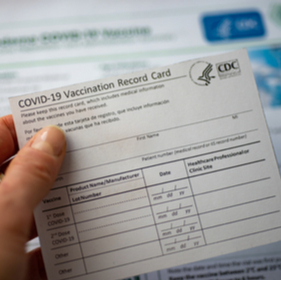EEOC Clarifies Legal Issues for Employers When Mandating, Encouraging or Asking About Vaccinations

On May 28, 2021, EEOC issued 21 new and updated points of guidance (Section K) for employers grappling with the legality of requiring, encouraging, and even providing Covid-19 vaccinations for employees. The release primarily addresses the Americans with Disability Act (ADA) and the Genetic Information Nondiscrimination Act (GINA). EEOC also provides resources to which employers can refer employees who are seeking vaccinations or further information.
Incentives
Generally, vaccine incentives are compliant with ADA. Employers can also ask for confirmation of vaccinations received from third-parties (pharmacies, municipalities, etc.) without it qualifying as a “disability related inquiry” that requires justification based upon business necessities—although information received must be treated as confidential. For employer-provided vaccines, where the employer would be asking “screening questions,” incentives must not be so substantial as to be deemed “coercive” in creating pressure to disclose protected medical information.
GINA does not prohibit incentives for employer-provided vaccine programs, so long as no genetic information is obtained during the screening process.
Vaccine Mandates for Disabled Employees
Although mandating vaccines does not generally violate federal law, EEOC highlighted how some employees whose qualifying disability would exempt them from a vaccine mandate and require reasonable accommodations such as working from home, working with a face covering, working at a distance from others, or working a different schedule. In a similar vein of civil rights, employers are advised to ensure their vaccine requirements do not have a “disparate impact” on any particular race, color, religion, sex, or national origin.
However, employers are not completely barred from requesting that disabled employees be vaccinated. If indeed a worker would pose a “direct threat” to themselves or others in the workplace if not vaccinated, and that threat cannot be reduced or eliminated by a reasonable accommodation, then the employer may enforce the mandate. Employers would be wise to clearly announce the vaccine mandates and encourage requests for any accommodations from employees who might qualify—and to employ ADA protocols in any ensuing discussions.
Screening Questions
Screening questions asked during employer-provided vaccinations qualify for ADA protection, which means the questions must qualify as “job related and consistent with business necessity.” To meet that standard, all questions should be examined to make sure that an unsatisfactory answer (or non-answer) would truly pose a direct threat to the health and safety or that employee or others. However, this requirement does not apply to voluntary vaccine administration by employers—but only if the questions (like the vaccines) are voluntary.
Although questions of employees about vaccinations by a third-party is not a “disability-related inquiry,” any documentation provided in response must be treated as confidential.
Family Members
EEOC also clarified that requests for employees to confirm that their family members have been vaccinated does not invoke GINA, because that information does not relate to the manifestation of a disease or disorder in a family member, or any other form of genetic information.
However, GINA would preclude incentives for an employer’s family member to be vaccinated through an employer-provided vaccine program, as the screening questions would necessarily address the employee’s family medical history. GINA specifically prohibits offering incentives for such information. That said, employers can still offer vaccinations to family members without incentives, so long as information obtained remains confidential, especially from any managers or others who make employment decisions about the employee.
If you have questions or need assistance, please contact the employment attorneys at Paley Rothman.
